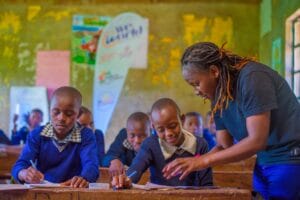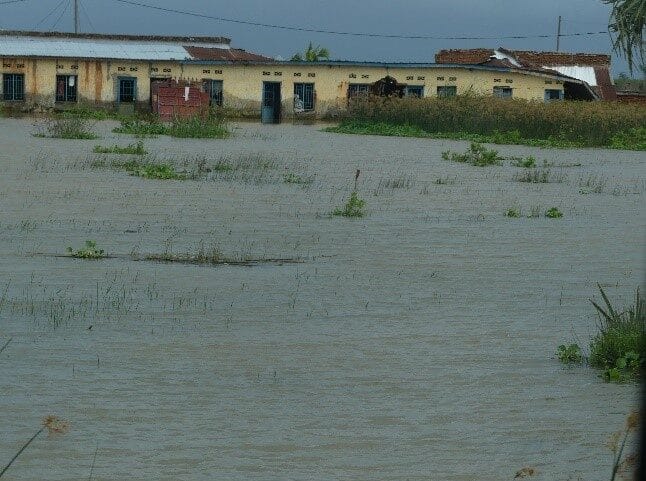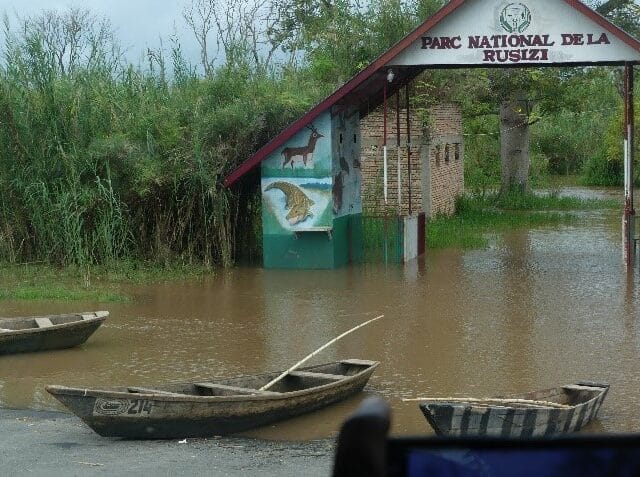
Climate change as a phenomenon concerning our community affects our present, even before our future. The most impacted countries are those that have contributed least to the causes of ongoing global climate disruptions, as is the case with the African continent, characterised by high vulnerabilities that exacerbate its exposure to risk and limited resources in terms of adaptation and mitigation capacities. From the pre-industrial era to the present, the continent is responsible for about 3% of total historical emissions, but despite this, it is among the most affected by the climate crisis in terms of reduced food production, decreased economic growth, water scarcity, loss of biodiversity, loss of life and forced displacement within and beyond its borders. In an interconnected system such as the climate system, every tenth of a degree above the 1.5°C threshold of global warming generates devastating impacts on entire communities and ecosystems in Africa, representing a true case of climate injustice.
In recent weeks, as a result of the El Niño climate phenomenon, East Africa has been hit by unprecedented torrential rains and flooding, linked to overflowing rivers and rising lakes that have claimed several hundred lives in the region. In Kenya, for example, nearly 20,000 people in the Dadaab refugee camps - home to over 380,000 refugees - have been displaced by rising water levels. Many of them are among those who have arrived in the last two years after fleeing severe drought in neighbouring Somalia.
Burundi is one of the twenty most vulnerable countries to climate change according to the International Organisation for Migration. In the country, instead of the usual two rainy seasons (September-January and March-May), rainfall has been virtually uninterrupted for months. Since September to today it is estimated that more than 200,000 people have been affected by floods, landslides, violent winds and hail, and the number of people forced to move within their country has increased by 25 per cent to 98,000, according to Violet Kenyana Kakyomya, the UN Resident Coordinator in Burundi. About 32,000 refugees - almost half of the country's refugee population - live in the flood-affected areas and are in need of urgent assistance.
In the rural area of Gatumba and the rest of the province of Bujumbura, the country's economic capital and the main city on the north shore of Lake Tanganyika, several neighbourhoods were flooded, roads and bridges destroyed and some hotels and hospitals abandoned due to the rising water level of the lake, leading to severe environmental, social and economic impacts. Refugee families and many Burundians, including the elderly, had to move several times due to the continuous rise in water levels. Access to food and other basic necessities is increasingly difficult as prices have risen due to high fees for using canoes to transport goods. Education has come to a standstill as classrooms have been flooded and teaching materials destroyed. Outside Bujumbura, rent prices have doubled, making it too expensive for many refugee families to move, who have no choice but to stay in their waterlogged homes. The municipality of Nyanza Lac in Makamba province, an area that has received 25,000 Burundian refugees returning from exile in recent years, has also been hard hit.
From a health point of view, the flooding of entire neighbourhoods and the pollution of the water by human sewage and rubbish have exposed the population to potentially deadly diseases, particularly those contracted through the fecal-oral route such as cholera, posing a serious threat, especially to weaker individuals such as pregnant women, children and the elderly.
WeWorld has been present in Burundi since 1994, with projects related to water, nutrition, socio-economic development and health in the same areas most affected by the flooding. In order to respond to the additional and renewed need for humanitarian assistance following the unprecedented events of the last few months, in addition to the implementation of the various development projects on the ground, we are part of the Équipe Humanitaire Pays (EHP) of Burundi, in coordination with all the actors of the humanitarian response in the country, to monitor the situation and evaluate possible interventions in support of the communities affected by the extreme weather phenomena.
While climate change is a trigger for climate hazards such as this one, as well as a multiplier of crises and social inequalities, further exacerbating the impact of flooding is poor land-use planning and management that does not properly take into account areas already at very high risk. Moreover, combating and mitigating climate change in Africa would require a greater contribution at the international level in terms of economic and financial resources directed to the most vulnerable and most impacted countries, in the name of a real climate justice that also takes into account the recognition of international protection for those who are forced to leave their homes because of extreme climatic events.




